Myth # 1: People are not capable of change.
Here’s the thing, if you are convinced that that’s just the way you are, you will make it so! The way you think becomes a self-fulfilling prophecy.
Thoughts are really, really powerful. Amongst other things, what we think influences what we pay attention to. In other words, we look for things to prove what we think.
Change is always possible, individually and interpersonally. Here's a video by Dr. Joe Dispenza, where he talks about how we get stuck in patterns of thinking and feeling that shape our behavior, which influences how we are responded to by others, which further establishes how we think and feel, and on and on it goes. Watch this video with the patterns in your relationship in mind.
Myth # 2: Conflict is bad and should be avoided.
That’s a huge red flag in my book. How could you live together, spend so much time together, raise kids together and never fight?
That said, there are ways to fight that can be damaging and there are ways to fight that can bring you closer together. Watch this short video on good versus bad fighting in relationships to learn more.
Myth # 3: Tending to your relationship is not as important as tending to your kids.
Kids are demanding. They have lots of needs, which can feel unrelenting. You combine that with work, lack of sleep and financial pressure, and it just becomes automatic that your relationship with your partner gets sacrificed.
Relationships are living entities that need to be tended to regularly. Not doing so will directly impact the wellbeing of your children. So if your concerned about your children’s wellbeing above all else, you need to prioritize your relationship with your partner.
Read the following two articles on the impact that having kids has on marriages and relationships:
Decades of Studies Show What Happens to Marriages After Having Kids
Why Do So Many Couples Break Up After Having a Baby
Myth # 4: Your Kids Are Not Affected By Your Relationship
If you’re stressed, anxious, depressed, or angry, it will get communicated to your kids. It’s going to happen at times. We’re human. But to pretend that they are too young to understand or to be impacted by your behavior is just wrong.
Another way our we impact our kids is via our projections and expectations. It's common for people who have not worked through and processed their own issues to inflict them onto their children.
One of the biggest reasons that I created Love After Kids is because I know that helping people’s relationships will be helping their children as well. Watch this video about how to let go of parenting expectations.
Myth # 5: You can assume that you know what your partner thinks, feels and needs
I don’t care how much you think you know about your partner.
I don’t care how familiar his behavior is, or her facial expressions, or the things he says, or her routines.
The more you assume, the further and further you get from each other, from really knowing each other.
Assuming is the death of relationships. Read the following article from Love After Kids on the Huffington Post loaded with tips and advice called How to Save a Relationship.
Myth # 6: Your Partner Should be Able to Read Your Mind
You’ve got to spell it out. Spell it all out. Don’t assume he knows what you want. Tell him.
Don’t assume she knows your feelings are hurt. Tell her.
Take the mystery out of communication. Make a pact with each other.
Don’t assume he knows you appreciate that he cooked dinner. Thank him.
Expressing gratitude for all the little things is so important.
Who doesn’t want to feel appreciated, recognized and valued?
Here's an article on the importance of gratitude in relationships called:
Encouraging Your Parenting Partner - Praise and Thanks Go a Long Way.
Myth # 7: Relationships Should Come Easy and Should Not Require Work
There’s no room for complacency in relationships.

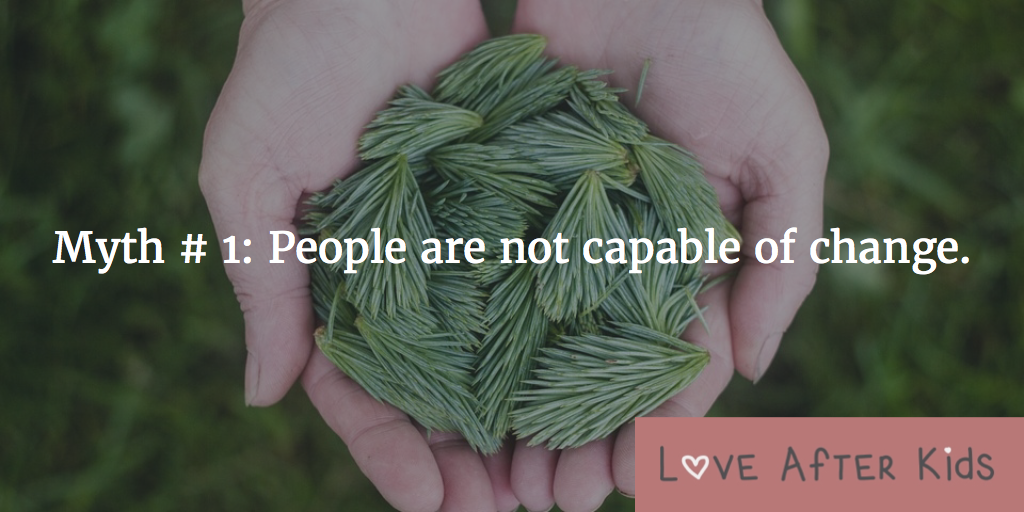
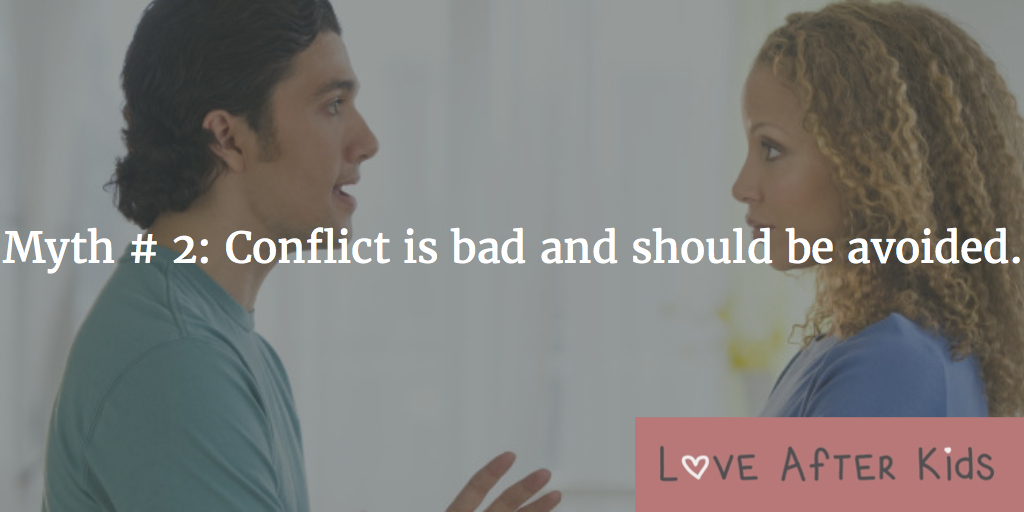
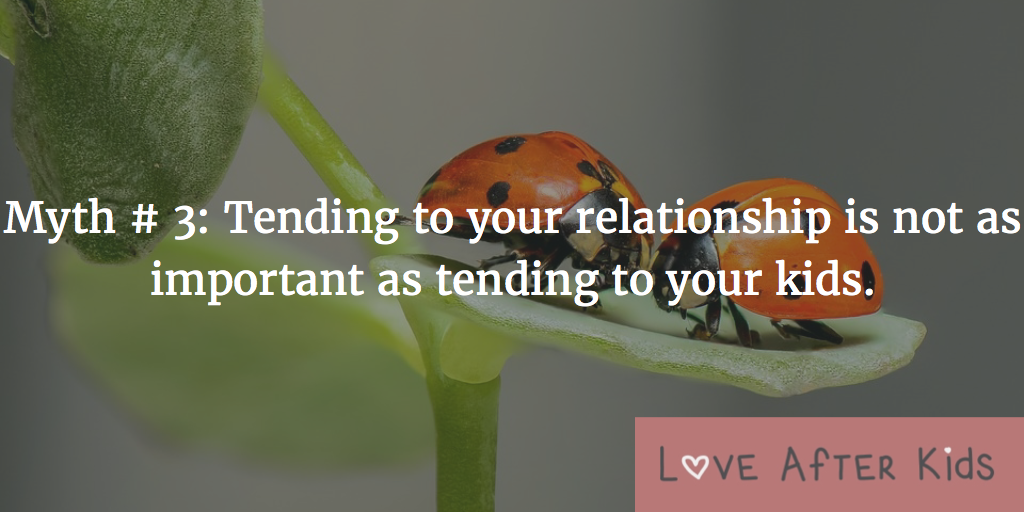
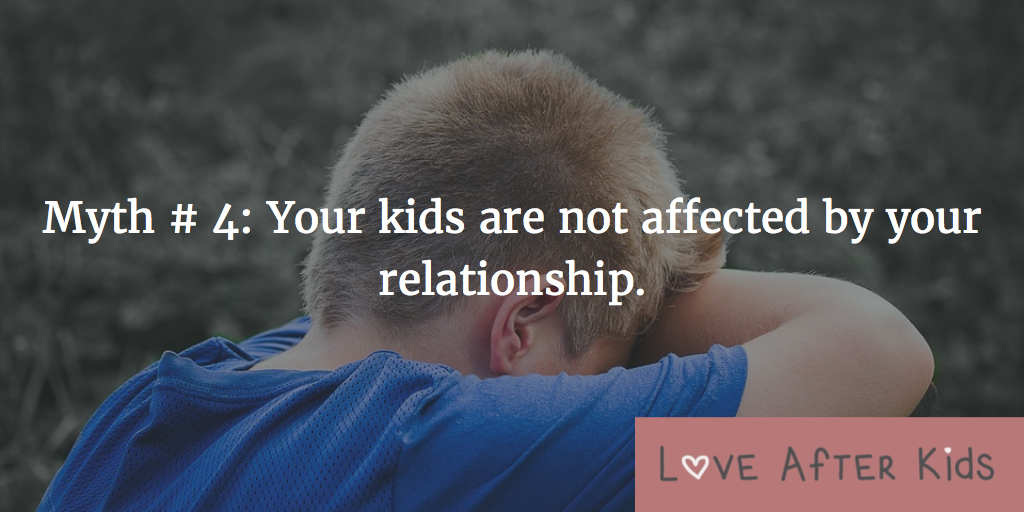
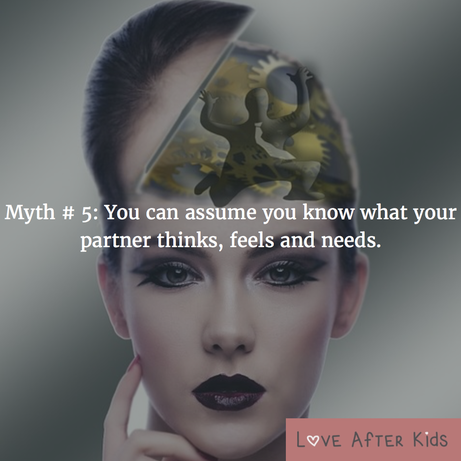
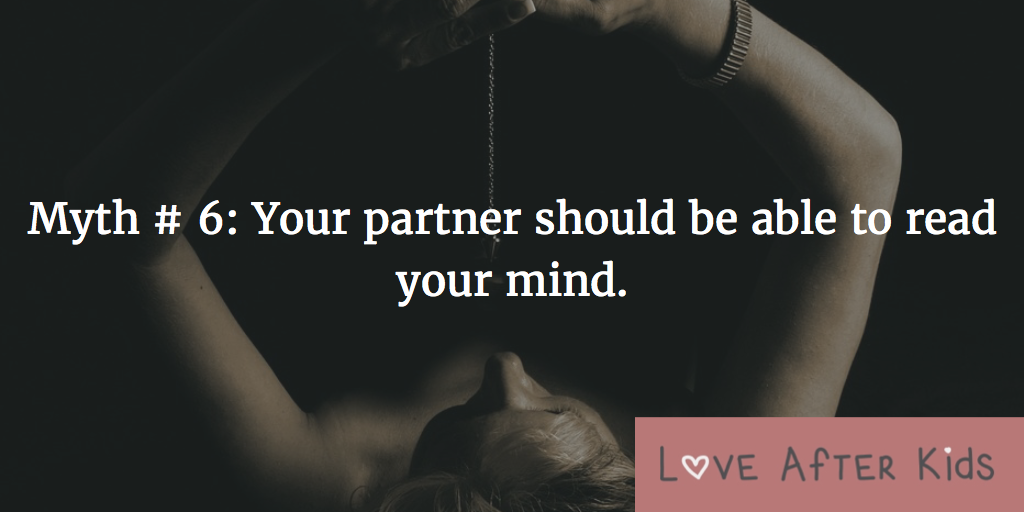
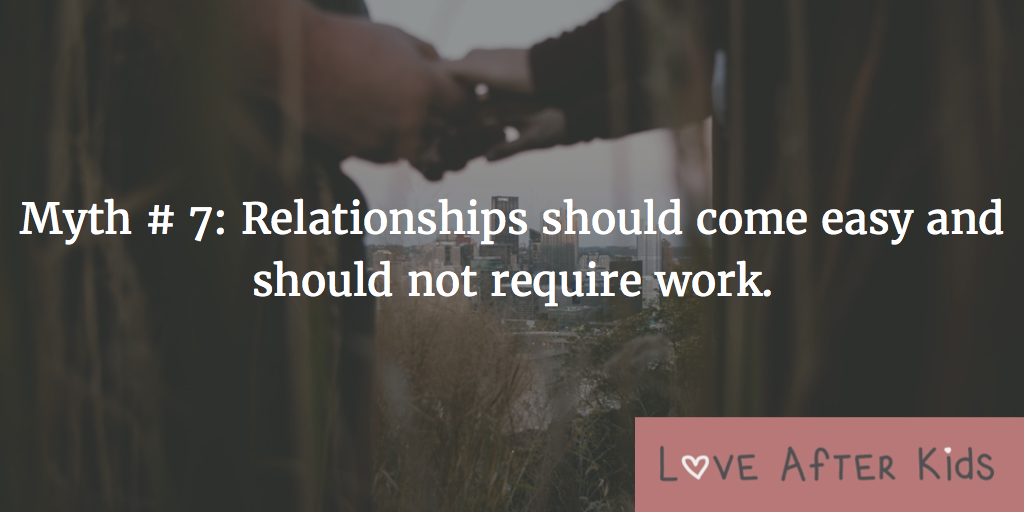
 RSS Feed
RSS Feed